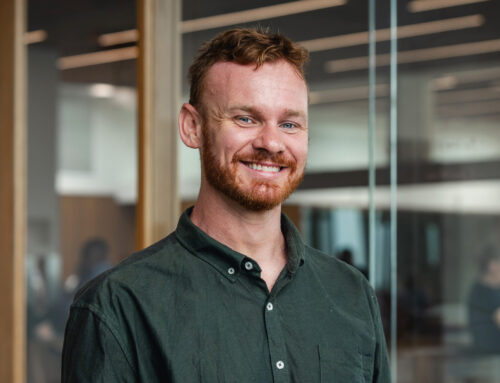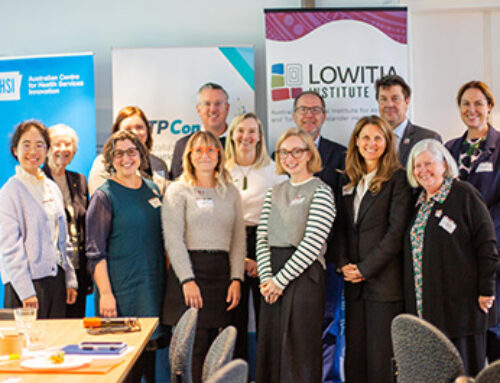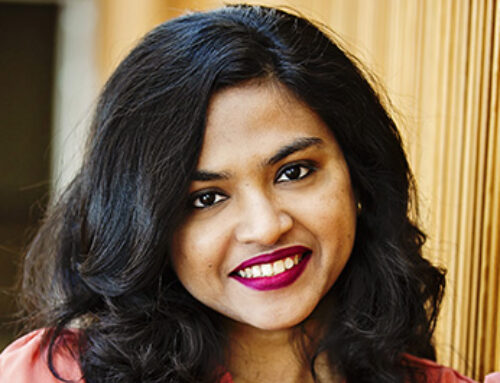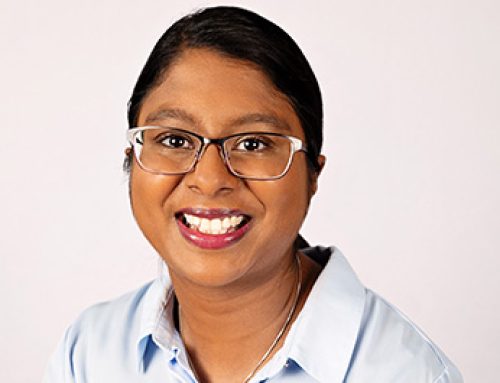Researcher spotlight: Q&A with Angela Melder, Kate Young and Angela Byrnes
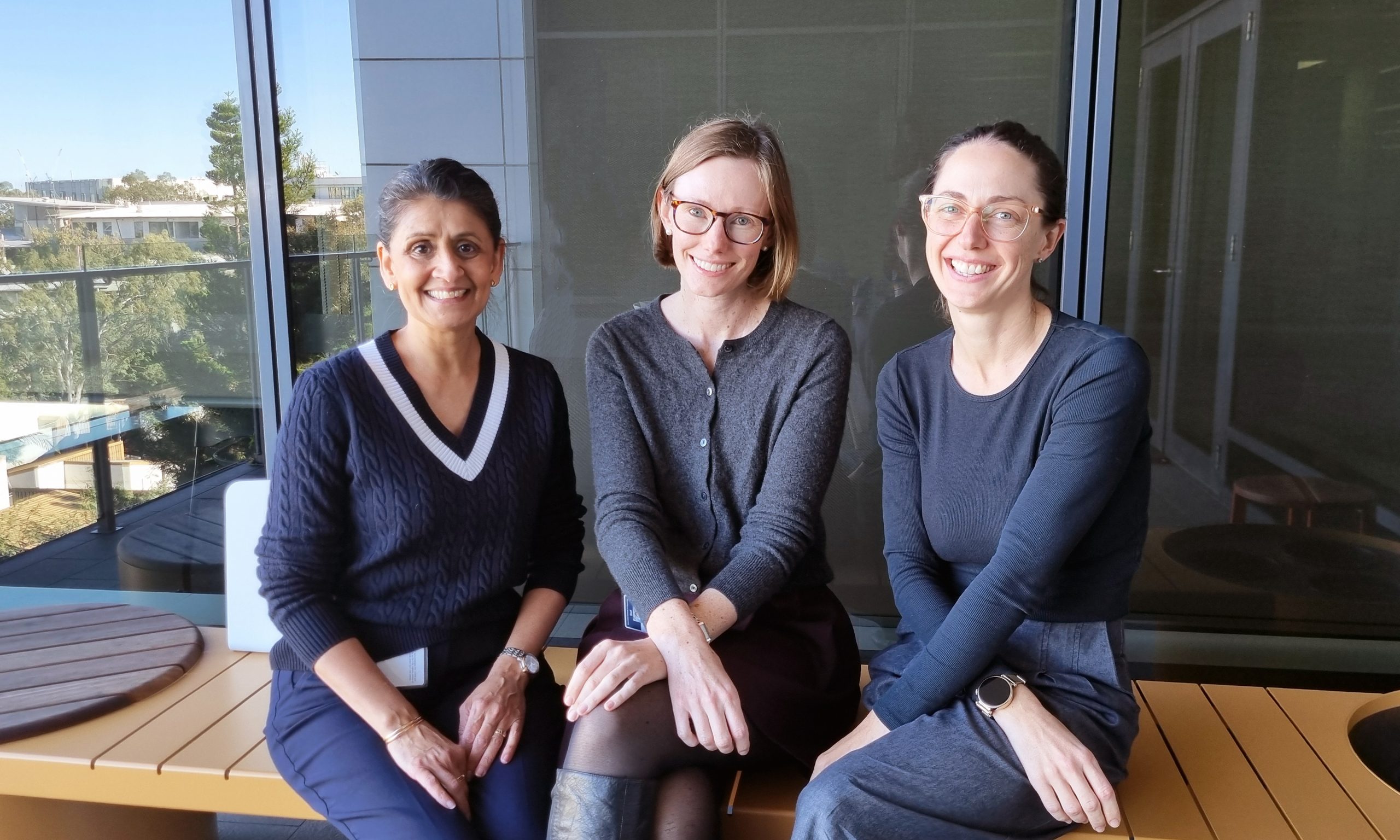
L-R: Angela Melder, Kate Young and Angela Byrnes
Recently joining AusHSI, Research Fellows Dr Angela Melder, Dr Kate Young and Dr Angela Byrnes sat down for a chat about health services innovation and what inspires them in their work.
What does health services innovation mean to you and what experience do you bring to AusHSI?
AB: I’m a clinician by background, so I tend to think about health services innovation in terms of improvements to patient care, particularly around making sure that the care that we’re providing is evidence-based, efficient and high quality. This is what attracted me to AusHSI, where there is a focus on getting research into practice. It’s very practical, pragmatic, clinical focused research, rather than ivory tower research.
AM: I agree, I think AusHSI provides an amazing platform for moving evidence into the real world for a very practice-based need, and we bring the rigour of our research into that translation process. We build on and strengthen relationships with our health partners and act as the bridge to enable the official translation.
I’m an implementation scientist with a public health background. I’ve worked in epidemiology and discovery research relating to treatments and management processes in the community at a Randomised Controlled Trial (RCT) level, so it can be very restrictive and focused very clinically and less on the implementation processes. I have also been involved in guideline development, making recommendations for practice that sadly often don’t get into practice. That’s what drew me to implementation science!
KY: I’ve spent years now listening to people about their experiences in health services and identifying problems and potential solutions. What drew me to this implementation science role is that it’s about trialing those solutions in the real world and seeing if they work and they’re sustainable. It’s one thing to have this really great evidence-based idea backed up by academic papers, but applying the idea in multiple different settings with different people can be a very different thing.
In terms of my background, I’m a psychology academic focused on social equity and I am new to implementation science. When we talk about health services innovation, I only think of it as innovation if it’s actually helping everyone across the country, not just privileged sections of the population.
What inspires you most in your research?
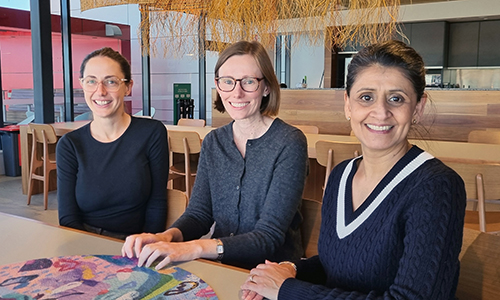
AM: Doing research that is driven through practice. A massive driver for me is working with health services in the real world to build a solution and then implement it to see if it works. Co-designing research with partners and applying the combined expertise of my research knowledge and their experiences of a problem that they want to fix.
AB: I’m most interested in the sustainable implementation of practice change. There’s always something new happening in a health service that, unfortunately, tends to fade away after the initial excitement. Senior management will drive a new activity to meet certain goals, but the people on the ground will tell you that it’s not happening in practice. Understanding how we actually make sure these things do happen in a way that continues on is important.
KY: For me it’s people and their stories. I’ve worked almost exclusively in sensitive, difficult topics such as childhood cancer and medical misogyny. I find sitting down with a person and listening to their experiences really motivating for other aspects of research. Writing up consent forms or ethics applications can feel tedious, even though you know they’re important. But when you have that person in your mind and their story driving you through that, it just feels like a really big privilege to work with them and that means a lot to me.
Why is health services research important?
KY: It’s important to learn about and apply innovative methods to capture patient or consumer stories and embed them in the way we go about research. A lot of traditional research methods are based on quite educated people who speak fluent English and that doesn’t work for everyone. We need to be working with people from different disciplines and people on the ground to find ways to elevate the voices of diverse consumers who experience health services differently.
It’s about being able to scale but also adapt. In one month of being at AusHSI, not once have I heard anyone say that anything is too difficult. Last week, we spent ages discussing how you go about getting an interpreter in order to make sure you include everyone in your research. Most other organisations would have said that that would cost too much money, or time, or it’s too hard. At AusHSI, people are prepared to go that extra mile to find a solution, there’s a real value of inclusivity.
AB: Something I always come back to is that health services are there for a reason, which is to meet the health needs of patients. If we’re not able to do that effectively and efficiently, then there’s a problem. Health services research to me is about making sure we’re doing what we’ve committed to doing. Clinicians can have the best intentions, but often there are many systemic barriers and frustrations that get in the way and that’s why it’s so important to me to make sure that processes are operating efficiently, and that we’re continually pushing for improvement, or it will never get any better.
What do you see as the main challenges facing Australia’s health system?
AM: I think equitable access is a pretty important issue. Equity means that it’s tailored to suit different people with different needs. Although we have equality in our public health service, which is there for everyone, the equity isn’t there – it isn’t balanced. Not everyone can access it in the same way, which is not fair.
AB: We also need to think about whether our resources are being directed to the right place. This is another issue given the high health costs and how much of our national budget goes towards healthcare. Where can we be doing better? There are a lot of wasted services, so understanding how we can be better redirecting that money and getting more value out of health services.
KY: With grant-based work, it can be hard to maintain continuity. If you’re doing quality research where you’re building relationships with consumers, it’s really heart-breaking when your 3-5 year funding cycle ends, you apply for more funding but are not successful and then the work just stops. Often someone else might start all over again in a different way, which is a waste of resources. It’s upsetting and hurtful to consumers you’ve worked closely with who are really wanting an outcome. And it’s disheartening for researchers because there’s no job security. We do this work because we care a lot. But how we fund health services research is problematic.
AM: This is something that drew me to AusHSI. I was seeing an organisation with a platform to build continuity of research, building on findings, working with different partners and building strong collaborations with different groups.
KY: Yes, it’s very unique, its a really team-based approach where you think about projects and build authentic connections, relationships and assets over a long period of time before applying for funding.
AM: I love the working models at AusHSI, the consultancy work and the grant-based, academic work. It’s strongly practice driven. If an organisation asks us to help them with something, we do it with them and then they want to keep it going, you build that in from the start, so that model is really exciting to be involved with.



